Curious about how meal planning and intuitive eating fit together? They can actually be a great complement to one another, so read on to learn more!
Disclosure: This post is part of my ongoing partnership with Produce for Better Health Foundation. I was not compensated for my time.
At first glance, it may seem like a regimented, structured outline of exactly what and when to eat is the polar opposite of intuitive eating. And if you use that definition of a meal plan, it’s true. But as a non-diet dietitian who practice intuitive eating both personally and with clients, I’ve discovered that meal planning (notice, not a “meal plan”) can actually be extremely helpful in supporting practices of self-care and trusting your body. Planning meals can also help us incorporate nourishing foods more often. Let’s break it down and discover why!
[click_to_tweet tweet=”What You Need to Know About #IntuitiveEating and #MealPlanning” quote=”Here’s what you really need to know about meal planning to avoid turning it into another restrictive diet”]
Meal Planning Vs. A Meal Plan
A meal plan is passive and inflexible – you print something off the Internet, someone hands you a two-week outline, or you piece together your idea of a perfect week of meals and off you go to do your best to stick to it. Inevitably, life gets busy or a recipe downright sucks or you get bored with the routine…whatever it is, the meal plan becomes something you resent and want to rebel against.
Meal planning, on the other hand, is a dynamic process that is led by your experiences and preferences. It’s completely flexible so you can adapt it to any day or week or situation without feeling confined to sticking to it (perceived success!) or blowing it off (perceived failure *sad face*).
[click_to_tweet tweet=”‘Meal planning’ and a meal plan are not the same thing – read more to learn why meal planning can actually support other healthful behaviors” quote=”‘Meal planning’ and a meal plan are NOT the same thing”]
It’s like the old familiar saying about giving a man a fish vs. teaching a man to fish. So think of it this way: give someone a meal plan, and you perpetuate diet culture and support dieting behaviors. Teach someone to meal plan, and you empower them to make informed decisions about what they need to nourish their body.
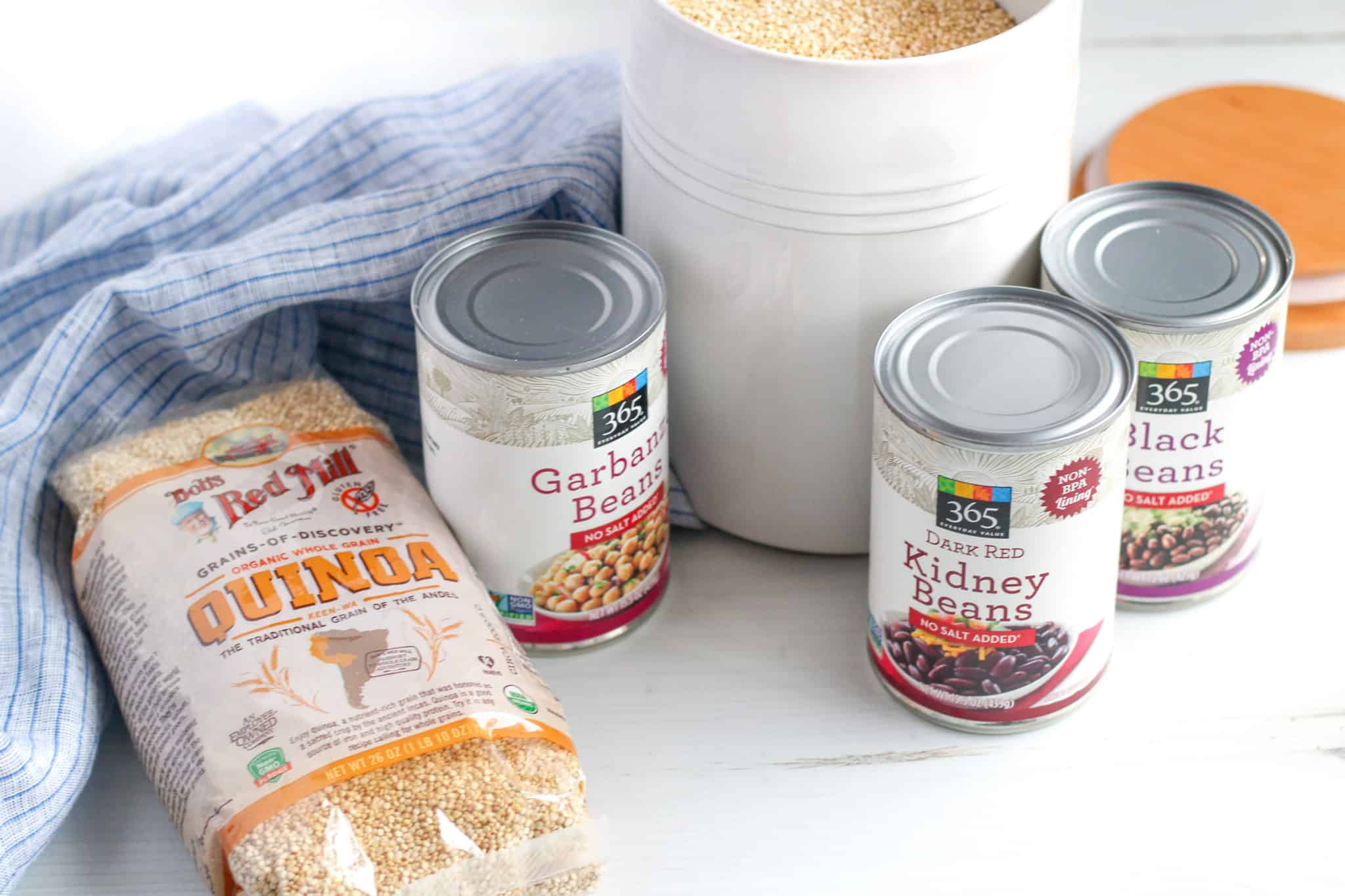
What’s Your Intent for Meal Planning with Intuitive Eating?
Another good thing to consider when it comes to meal planning and intuitive eating is, what is your intention behind meal planning with intuitive eating? If the goal is to take mindfulness out of the process or let you avoid making food decisions, it’s probably not advisable. That will only continue the cycle of relying on external sources, rather than your internal wisdom, as a cue for what and when to eat. In that sense, relying on a meal plan is no different than relying on a calorie tracker or macro pie chart to validate your food choices.
But…if meal planning opens room for mental energy and focus for other important things, or it eliminates stress or distractions then it can be a helpful tool. Often when we begin intuitive eating, we’re really out of touch with our hunger and fullness signals. Meal planning can add some temporary structure so we have the opportunity to connect with those body signals and learn from them. What that could look like is this:
WITHOUT MEAL PLANNING: You may be coming home from a stressful day at work. The kids are hungry, your spouse is dashing back out the door for XYZ, and you’re at a complete loss for what to make. You throw together something just to get the kids fed, wrap up for the night and put them to bed, then realize you’re still hungry and turn to the pantry to rummage for something to eat. Next thing you know, four episodes of your Netflix show have passed and you’re looking at the crumbs at the bottom of a bag of chips/cookies/chocolate/whatever. You never realized whether you felt full or satisfied but you feel guilty for mindlessly eating until it was gone.
WITH MEAL PLANNING: You knew this week was going to be nuts, so when cooking dinner the night before you chopped some extra veggies and thawed some pasta sauce. Maybe you set up your crockpot before you leave, or just have some cans of ingredients staged and ready when you get home. Give your spouse a smooch and say, “Don’t worry, I got this” as you cook up a simple meal for your family. Because you know you usually like something sweet at the end of the day, you picked up one of your favorite chocolate bars (remembered to add it to the shopping list) and know you can always reach for it if you notice yourself feeling hungry or unsatisfied after dinner.
How do those two scenarios sound to you?
What Intuitive Eating and Meal Planning Could Look Like:
If you said the second version, it’s likely that meal planning would help eliminate unnecessary stress around food decisions. Here are just a few examples of practices that support intuitive eating while also creating more efficiency/less waste when preparing meals during busy weeks:
1. Focus on choice, not calories
A meal plan with intuitive eating is never based on calories but instead focuses on variety and choice.
Making a decision about whether or not to eat something because of its caloric or nutrient content is a dieting behavior. That mindset leads to restriction or avoidance of certain foods while ignoring aspects of eating like pleasure and enjoyment. However, building in variety in your grocery cart or planned recipes ensures you can still creating balanced, nourishing meals (calories aside). Here are a few categories you might start with:
- Fruits (fresh, frozen, canned, dried, and 100% juice)
- Vegetables (fresh, frozen, canned, dried, and 100% juice)
- Proteins (plant-based or otherwise)
- Dairy (if you include dairy products)
- Grains, bread, or starches
- Beverages
- Snack or Convenience options
You can also think in terms of categories for organizing your kitchen and setting up an environment that supports efficiency. You can brainstorm options for your refrigerator, freezer, and pantry so you have a variety of shelf-stable options that can be used later and more perishable, fresh items that should be used sooner. Meal planning and prepping also helps reduce food waste (and wasted $$!) when you have a variety of items stocked and ready for when you need them!
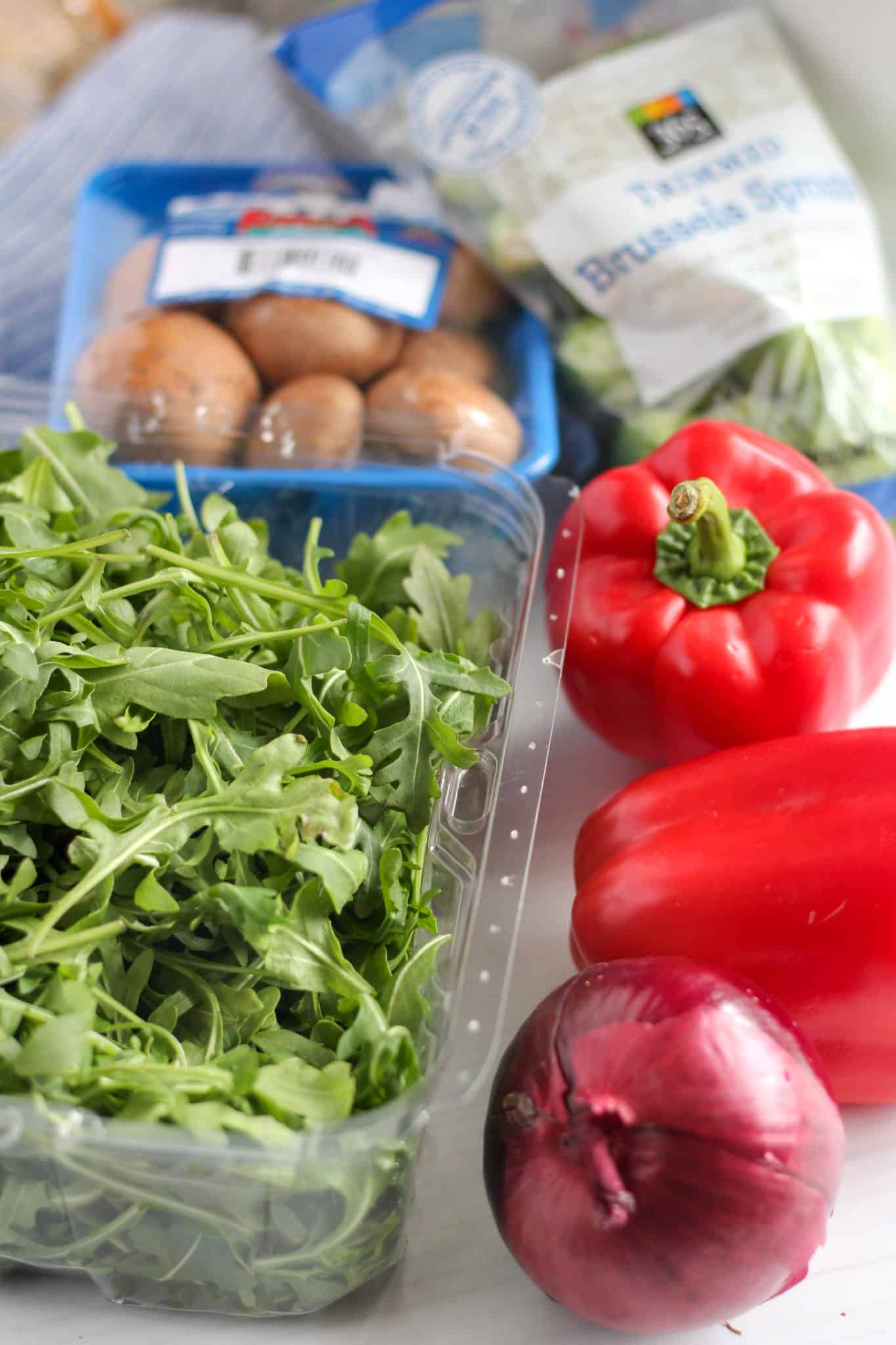
2. Minimize stress and chaos
The plan can identify opportunities to shop and cook that fit into a chaotic schedule, eliminating stress or last-minute dashes to the grocery store.
This is a prime example of living our your values, something that is encouraged with a non-diet approach. Read more about that HERE.
There’s nothing more irritating (or wasteful) to me than driving back and forth across town looking for a specific ingredient or specialty item. That adds stress to my day, wastes my time, and leaves me feeling frustrated that I couldn’t make do with what I had at home or find a simpler solution. That’s part of why I including a plan for when and where I shop so I can make just one trip to stock up on any and everything I need. I know exactly how long it takes me to get there and back and I can factor that into the total time commitment I need to prep things for the week.
Without a plan? Yep…wasted gas, wasted time, wasted energy…not fun.
[click_to_tweet tweet=”Planning your shopping trips can help reduce stress and wasted time – see the other ways #MealPlanning can support #IntuitiveEating” quote=”Planning your shopping trips can help reduce stress and wasted time – see the other ways #MealPlanning can support #IntuitiveEating”]
3. Nothing wrong with leftovers
Leftovers are an option for convenience but are designed to be refreshed in taste appealing ways
If you had to describe your relationship with leftovers, what comes to mind? Growing up, I tolerated them but they were never the most exciting thing. Now, I actually look forward to the routine and comfort of leftovers. That may sound weird, but it’s really not – if that’s one night (or more!) that I don’t have to cook, that’s less mess to clean afterward. And avoiding boredom is easier when I make sure there’s always a tasty way to refresh leftovers into something I actually WANT to eat.
Shredded cheese? Cool. Toasted almonds? Yes, please. Simple pesto sauce to mix in and create a whole new flavor? SIGN ME UP, I’m there.
The convenience factor is there too, which is one of the most appealing parts of meal prepping or planning in the first place. Give yourself the chance to explore what would make leftovers appealing to you and don’t be afraid to experiment!
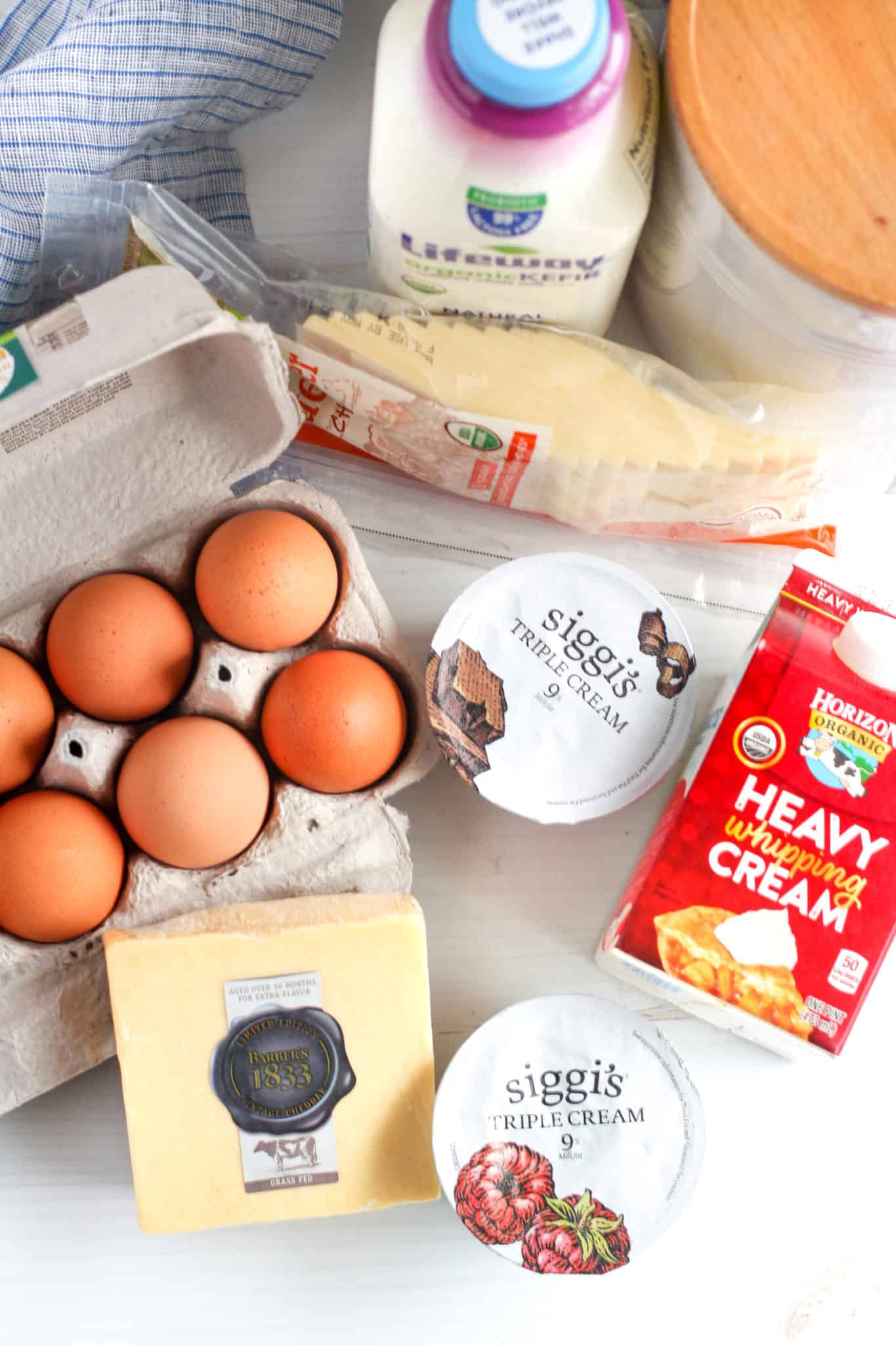
4. There are always alternatives
It’s OK to stumble or feel unsure about whether you’re doing everything “right”. The fact is that there’s no such thing as a perfect diet or perfect meal, so intuitive eating supports the process of continuous learning and adapting to what you need.
[click_to_tweet tweet=”Want to get started with meal planning? It’s as simple as just cooking some food! Learn how it fits in with #IntuitiveEating” quote=”The main takeaway: Just get started and cook some food!”]
A lot of intuitive eating is about removing judgment from food choices, so it’s OK if you try a new plan that turns out to not work as well as you’d hoped. It also removes judgment from saying, hey, I know I have a plan but at this moment I’m going to make a different choice about what/when/where to eat. It also removes the pressure of feeling like you have to always cook from scratch. Eliminating the prep for fruits and vegetables by turning to frozen, canned, or dried options can not only make cooking more fun but also much more simple!
Street Smart Nutrition Tip: When I really need an alternative, I outsource recipes, shopping, and some of the ingredient prep to something like a meal prep kit. Blue Apron happens to be the one I like – read more about it HERE!
I’d love to hear how you strategize for meal planning with intuitive eating – how has it helped you? Or if you don’t find it to be helpful, I’d love to hear why. Drop a comment below!
And if you know someone with questions about meal planning with intuitive eating, be sure to share this post!
Want to learn more about intuitive eating? Here are some other posts to help you learn more:
- Is Intuitive Eating the Same as Mindful Eating?
- What to Do About Emotional Eating
- Intuitive Eating FAQ: What is Normal Eating?
- Non-Diet Meal Planning Tips
And if you’re looking for more support for a non-diet approach and intuitive eating, be sure to check out my Intuitive Eating Workbook. It’s full of resources and tools to help you kick the dieting mentality and find food freedom!
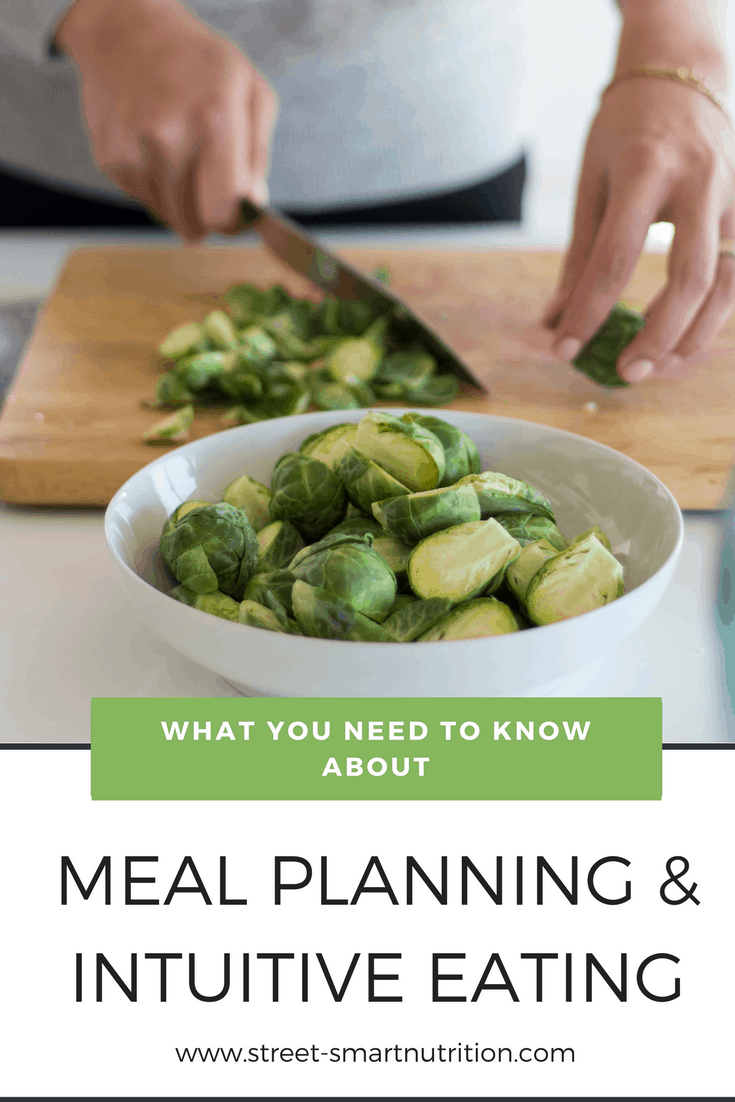
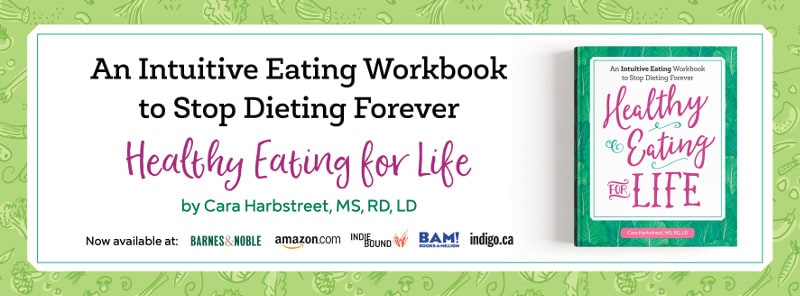

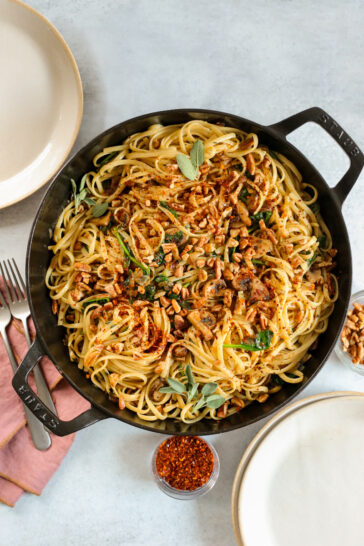
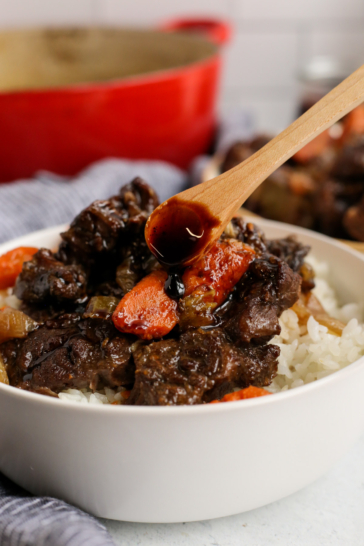
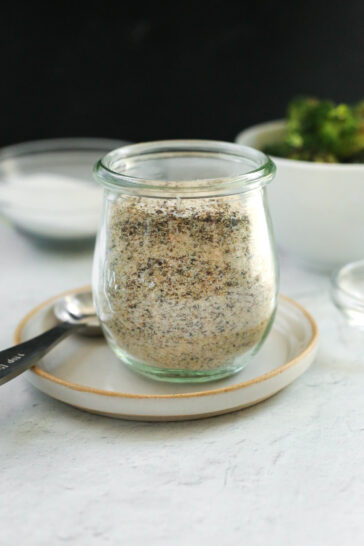
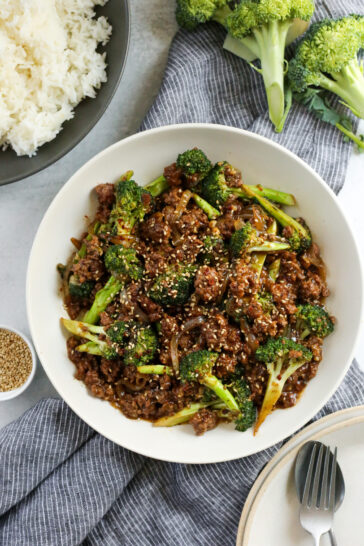
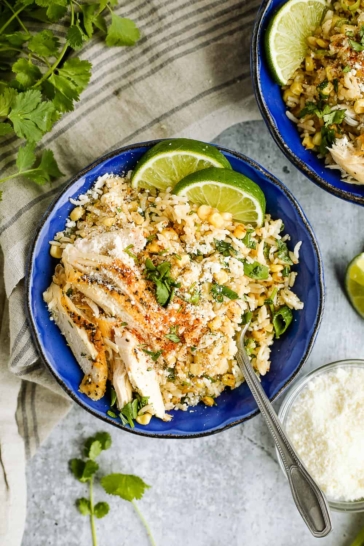
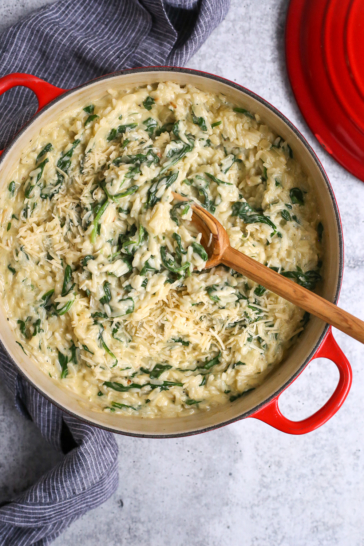







Questions & Reviews
So good to read and I love how you framed it meal planning as a verb versus a noun. The active meal planning or sometimes meal prepping can really enforce what we learn when we practice and Intuitive eating. Some might even say intuitive cooking ha ha!
Intuitive cooking, I love it! But I completely agree, it’s the practice of applying what we know and have learned about ourselves through intuitive eating. Thanks for checking it out!
Great breakdown of meal planning and how to do it intuitively. A meal plan doesn’t have to mean being rigid, it’s also a way to not only streamline a grocery store trip but also save a bit on the pocketbook!
Thanks Kristina, I completely agree! Without a little planning ahead, I know we would waste more food and money. I’m all about efficiency these days!
LOVE this! Great post
Thanks Abbie!
Great insights Cara! Thanks for this informative post.
Love this post! I know that meal planning helps lower my stress levels so much during the week. Exactly like what you said, it takes away the stress of food choices. But I also try not to have a strict schedule formed so impromptu dinners out still fit.
Well said! It’s almost like planning for flexibility or planning for opportunities to have those other choices. Less stress and no cycle of guilt or shame for having gone “off plan”, which is something that seems to happen so often with rigid meal plans.
This is so helpful, Cara! Meal planning is also great to keep from food waste in my household!
Great post topic! I often get questions about IE and meal prep – it totally depends on the individual, but just having some staple items ready to go helps me so much!
I agree! It’s not the answer for everyone but it can be customized based on what someone needs, when they need it!
This is such a helpful post, Cara! Love the FB live also!
Thank you, Shannon, I appreciate that!
Love all of these meal planning tips and ways to eat intuitively! I agree – rushing back to the grocery store for that missed ingredient is truly a waste! Been there, done that (many times). I try now to just use my friend (aka google.com) to find a similar spice or replacement 🙂 Might not turn out exactly how the recipe is supposed to – but it’s way better use of time (and food I already have on hand!). Thanks for such a great post!
Thanks Charlene! I rely on Google pretty often myself 🙂 Another awesome resource is my copy of The Flavor Bible, which has helped me out when I get in a pinch a need to find a substitute or make do without something. 100% agree that’s a better use of time and energy!
Your meal planning and intuitive eating game is on point! Thank you for your wealth of knowledge + I will most definitely be putting all your wonderful tips to good use!
Thanks Whitney! Glad you found it helpful!
i lovee this post—- esp the part on meal plan vs. meal planning.
I loved reading this post! I find all of those things to be true regarding meal planning, and the distinction between a meal plan (rigid rules for the purpose of weight loss, perfection, ‘health’) vs. meal planning for the purpose of self-care (busy days mean that minimising stress over what’s for dinner is important), saving money in the long run, and finding joy in preparing food during the week is so important to grasp 🙂 I’ve bookmarked this for use in practice
Kirstin, thanks so much! I’m glad you enjoyed it and found it helpful!